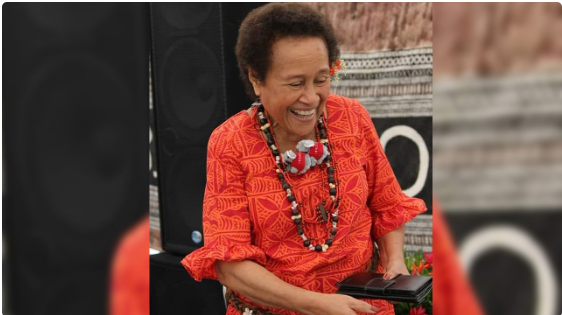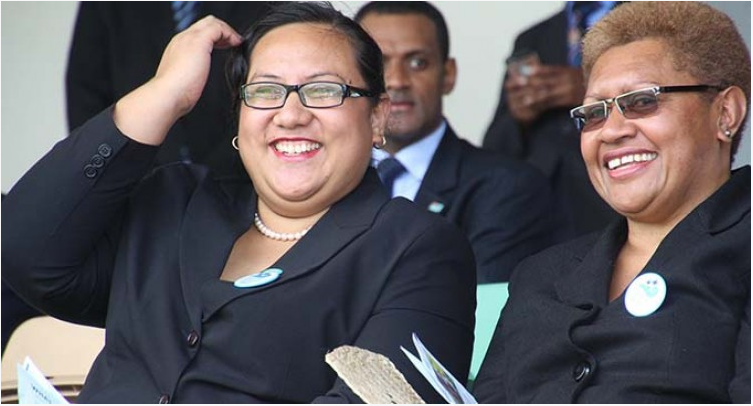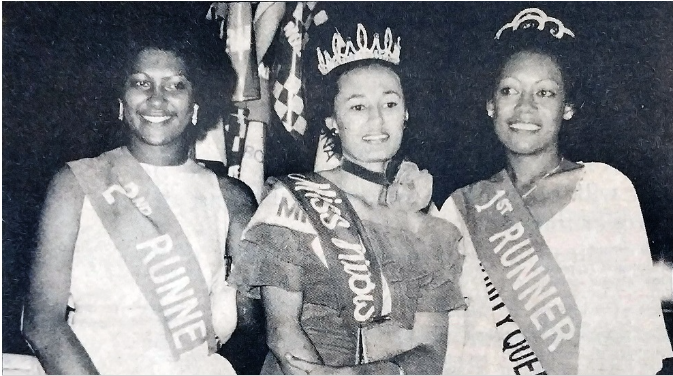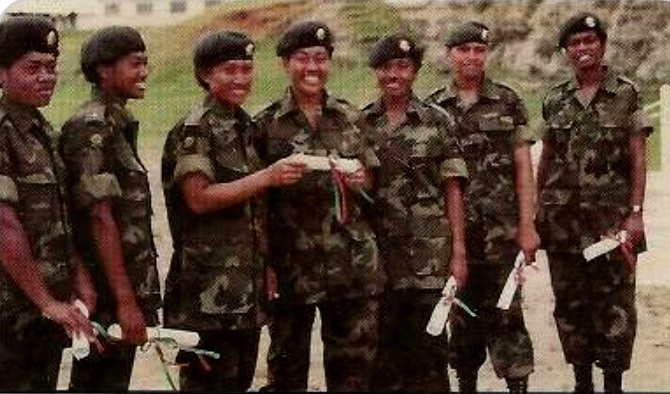By ACSOG Media

Adi Lusiana Tuivanuavou is the new President of the Adi Cakobau School Old Girls (ACSOG). Ms Tuivanuavou is a seasoned human resource professional with over 25 years of experience in regional organizational management who has been actively involved with the ACSOG since 2014. She has served in various leadership roles. These include Vice President and National Executive Council member. In October 2024, she was elected after presenting a dynamic vision focused on growth, innovation, and member engagement.
Since joining ACS in 1985 and actively participating in ACSOG from 2014, Tuivanuavou has seen its potential to offer more to members, reflecting on her journey from engaged member to President.
Building on her extensive experience, Ms. Tuivanuavou outlined her vision to propel the alum association into a new era of growth and innovation. In a stirring address at the ACSOG Inc. Annual General Meeting, shortly before she was elected President, the National President said she would draws on her experience as a long-serving ACSOG National Executive Council member.
Building on a Strong Foundation

In addition, she paid tribute to the immediate past president, Mrs. Ilisapeci Movono, under whose leadership Ms. Tuivanuavou was one of two vice presidents, the other being Ro Mereani Rokotuibau. The NEC oversaw significant projects for ACSOG, including chairing two milestone birthday celebrations, achieving debt-free status by paying off Charlton House, and establishing a mini gym for ACS athletes. Under Ms. Movono’s guidance, the association also supported the school in reclaiming the prestigious Coca-Cola athletics cup, showcasing a commitment to the holistic growth of the institution.
Looking back, over a decade ago, Ms. Tuivanuavou decided to become an active member of ACSOG. She chose this path rather than remaining a passive observer. “I didn’t want to keep suggesting that the already busy members do something about my ideas,” she explained. “The change was going to have to start with me.”
And start with her; it did. Ms. Tuivanuavou spearheaded numerous initiatives that have left a lasting impact on the association. Her vision for the future is equally ambitious. She plans to review the association’s legal and governance instruments. This will ensure that ACSOG has the frameworks to navigate the years ahead.
Driving Membership and Engagement

Similarly, recognising the importance of a robust and engaged membership, Ms. Tuivanuavou is championing a registration drive to encourage the association’s online community of over 4,000 members to become formally registered.
“We have over 4,000 members on our Facebook page, yet only 500 are registered,” she noted. “That means we potentially engage over 6,000 people to run ACSOG.”
Ms Tuivanuavou’s passion for empowering women is evident in her plans for an ACSOG eShop. In this platform, members can sell pre-loved uniforms, masi, mats, and other items. This initiative provides a platform for entrepreneurship and fosters a sense of community and self-sufficiency.
Acknowledging the challenges of balancing personal priorities with ACSOG responsibilities, Ms. Tuivanuavou emphasised the importance of mentorship and stewardship.
She encourages younger members to participate in the association’s review and mentoring circles, recognising the invaluable learning opportunities they present.
“I am motivated to prepare the ACSOG body for younger members who will recognise its value and want to progress into the future,” Ms. Tuivanuavou declared.
With over 25 years of experience in human resources, Tuivanuavou excels in regional organisational management. Tuivanuavou has a proven track record of leadership.
Preparing for the Future
As President, she aims to tackle some of ACSOG’s longstanding challenges, focusing on sustainable and non-labour-intensive initiatives. She recognises that members have various personal commitments.
Her plans include trademarking ACSOG’s brand, improving the commercial viability of the Charlton House investment, and focusing on including the organisation’s 4,000 Facebook members, of whom only 500 are formally registered. She hopes the registration fees will help fund ACSOG and allow for environmentally sustainable practices.

Additionally, she plans to expand the ACSOG network by creating an online directory that will enable members to connect with consultants, legal experts, and professionals across various industries.
She is particularly passionate about engaging younger alumni, recognising that millennial graduates need a platform that resonates with their interests and schedules. Tuivanuavou advocates for mentoring circles where younger members can connect with experienced ACSOG professionals, gaining invaluable insights to advance their careers.
Tuivanuavou’s goals are rooted in resilience and stewardship. As she takes the reins, she is confident that ACSOG will continue to leave a legacy as a strong, supportive community that empowers women to make a difference in their personal and professional lives.
ENDS
……….……….……….……….……….……….……….……….……….
Get Involved
Five practical ways you can support Adi Lusi’s vision an efficient, inclusive, and connected alumnae:
1. Participate in the Membership and Registration Drive
Members can encourage fellow alumni to register with ACSOG formally. By promoting the registration drive on social media, personal networks, and at alumni events, they can help grow the official membership. Increased participation brings additional resources, and active members strengthen ACSOG’s collective voice and impact.
2. Contribute Skills to the ACSOG Network Directory
Members can volunteer their expertise to create a comprehensive online directory. This directory would allow alumni to seek advice, hire consultants, and connect with professionals across legal, real estate, and education fields. Members with IT, legal, or organisational skills could directly help set up and maintain this valuable resource.
3. Volunteer in Mentoring Circles for Younger Members
Experienced alumni can take part in mentoring circles, guiding younger members who are starting their careers. This initiative helps foster intergenerational support within ACSOG, equipping young professionals with networking and career advice while creating a sense of continuity and shared purpose across generations.
4. Support the E-Shop by Donating or Purchasing Items
Members can contribute preloved uniforms, school memorabilia, and cultural items like masi and mats to ACSOG’s e-shop. By sourcing items from within the ACS community, the e-shop can become a self-sustaining platform that generates revenue for ACSOG and allows members to connect through shared history.
5. Help Plan or Sponsor Events and Fundraisers
ACSOG members can volunteer to organise milestone events, athletic meets, and other fundraisers, or sponsor them directly if they’re in a position to do so. By helping with these events, members can bring in additional funds and foster a stronger sense of community, all while reducing the reliance on membership fees or labour-intensive fundraising activities.








